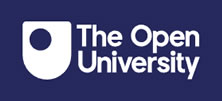Course Summary
This diploma develops your ability to approach and tackle complex, messy problem situations. It provides practical tools that bring new perspectives and approaches to problem-solving; it may change your thinking about a task or wider situation of interest.
College Link
Career Sectors
This course prepares you for working in the Career Sectors below. Follow the links to get a fuller understanding of the sectors you are preparing for.
Entry Requirements
There are no entry requirements for this qualification.
However, some option modules do have entry requirements. We�ll ask you to prove you meet them when you register for any of these modules:
Financial markets and the financing of organisations (B815)
Managing in a changing world (B870)
Creating and sustaining value (B872)
Principles of social and psychological inquiry (DD801)
Advance your independent learning (YXM830)
Although this qualification has no entry requirements, we recommend you have:
A UK honours degree (or equivalent).
Minimum IELTS (International English Language Testing System) scores of:
Reading: 5.5
Writing: 5.5
Speaking: 5.5
Listening: 5.5
Overall: 6.0.
Application Details
See Course Web Page link for next start date.
Fees
The Student
Career Interests
This course is typically suited for people with the following Career Interests. If these interests do not describe you, this course may prepare you for work you may not find satisfying.
Realist
Realists are usually interested in 'things' - such as buildings, mechanics, equipment, tools, electronics etc. Their primary focus is dealing with these - as in building, fixing, operating or designing them. Involvement in these areas leads to high manual skills, or a fine aptitude for practical design - as found in the various forms of engineering.
Realists like to find practical solutions to problems using tools, technology and skilled work. Realists usually prefer to be active in their work environment, often do most of their work alone, and enjoy taking decisive action with a minimum amount of discussion and paperwork.
Investigative
The Investigative person will usually find a particular area of science to be of interest. They are inclined toward intellectual and analytical activities and enjoy observation and theory. They may prefer thought to action, and enjoy the challenge of solving problems with sophiscticated technology. These types prefer mentally stimulating environments and often pay close attention to developments in their chosen field.
Career Progression
The knowledge, skills and understanding developed through this postgraduate diploma can be applied in many different situations. They are particularly relevant to managing and innovation in areas of practice that range from business and consultancy to health and social care, environment and development to engineering, technology and information systems. The flexibility in choice of modules allows managers and other professionals from a range of industries covering the private and public sectors to choose complementary modules that will enable them to tailor their learning. Relevance can be found in most organisations where an understanding of complex situations is required. This qualification can be useful for those who wish to demonstrate their capacity to manage more complex situations and problems or by those already working in systems and processes who may need to update their skills. If you are self-employed you may also find the knowledge developed by studying this combination of modules provides the opportunity to take a more objective and innovative view of the systems you have already created and how to change these for the future.
Duration
How long it takes
Most students study the Postgraduate Diploma in Systems Thinking in Practice part-time, completing 60 credits a year over two years. Typically, this means 12�14 study hours each week.
You must complete the Postgraduate Diploma in Systems Thinking in Practice within eight years.


